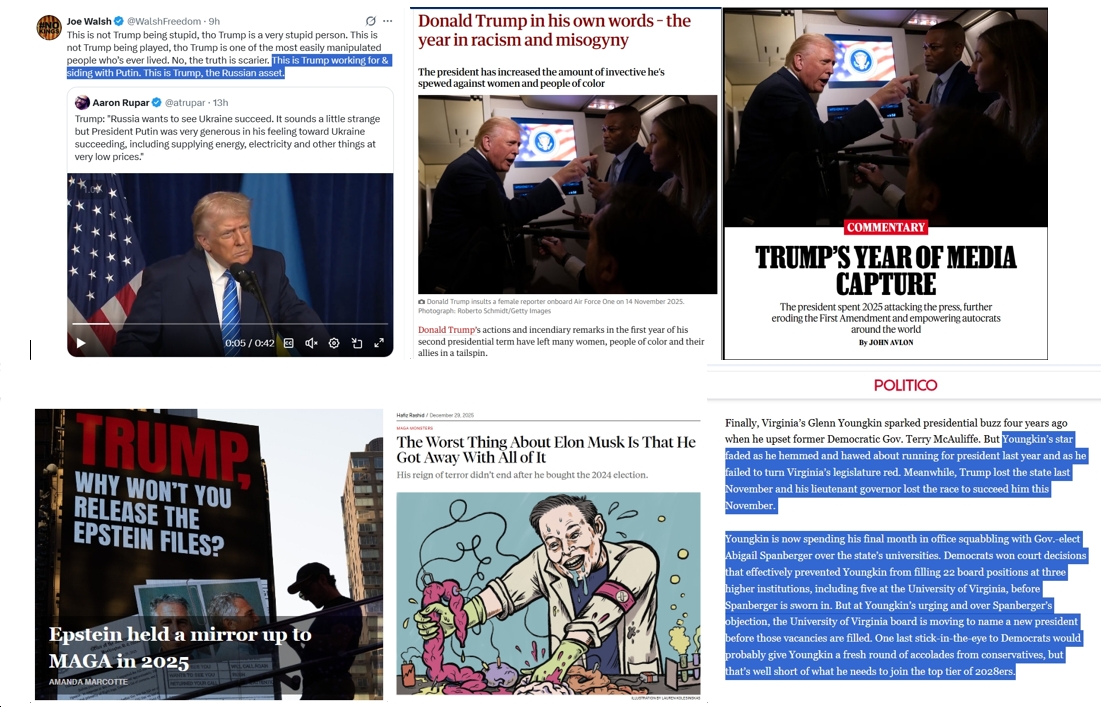With the ExxonMobil/Koch Industries Supreme Court© set to rule tomorrow morning on the constitutionality of what has come to be known, ridiculously if you ask me, as "Obamacare" (as if this is about any particular individual, as opposed to whether we start revamping our flawed, for-profit health insurance system), it's a great time to take a broader, historical view of what's really at stake here. Fortunately, we've got former Rep. Tom Perriello's brilliant article in The Atlantic to do that for us. Here's an excerpt (bolding added by me for emphasis):
...As our country anxiously awaits the Supreme Court's verdict on health-care reform, the media has reduced the case to the narrow terms of a political horserace. This characterization ignores the enormous significance of this case -- a shift from the modern fight between liberal and conservative Constitutionalists back to an older and more nationally divisive debate between Constitutionalists and Confederates.
From the Articles of Confederation to the Constitution of the Confederate States of America to the Lochner-era Supreme Court, confederationists have long believed in a United States consisting of states loosely united by a small, weak central government, and they have fought for more than 230 years to prevent, undermine, and erode the Constitution. While the term "Confederate" rightly conjures up America's sin of slavery and the racially charged movements for states' rights and state nullification, the present-day confederationists include conservative libertarians and corporatists who support a central government too weak to regulate or tax commerce.
This vision of a tiny, powerless central government has always been at odds with the U.S. Constitution, a document our nation's founders wrote explicitly to reject and replace the Articles of Confederation...Coincidentally, I'm currently about 3/4 finished reading Ron Chernow's magisterial, definitive biography of Alexander Hamilton, which goes into great depth bringing these very same arguments to life. As the book explains, the fight between "federalists" like Hamilton, Washington and Adams on the one hand; and anti-federalists/"Republicans" like Thomas Jefferson, James Monroe -- and, bizarrely, "Federalist Papers" co-author James Madison! -- were incredibly heated back in the late 1790s, with accusations flying around about treason, monarchy, you name it. Back then, the core of the differences resolved around no less than diametrically different visions for America: 1) the Jefferson/Madison vision of a primarily agrarian (aka, slave-based) nation, with a relatively weak executive branch and federal government vis-a-vis the states, and few if any modern financial instruments like banks, credit, etc. (also, the U.S. was to be allied with France, whose bloody revolution Jefferson admired, believe it or not); and 2) the Washington/Hamilton/Adams vision of a vibrant economy of both manufacturing and agriculture, plus modern methods of finance and trade (including a strong economic relationship with Great Britain), a relatively strong federal government promoting national economic, political, diplomatic and military strength, etc. (basically, this is the vision of America that won out, although it took the bloody Civil War to settle it once and for all, or so we were taught in school...).
Today, however, those same old arguments, which many had thought long settled (certainly since FDR's, if not since TR or earlier) have flared up again, led by radical anti-constitutionalists (as much as they like to say they are "strict constructionists" relying on "first principles," in fact they are nothing of the sort, but are violently opposed to those very principles they falsely claim to support!) like Ken Cuccinelli, Clarence Thomas, and Antonin Scalia, who clearly want to roll back most of history since the Civil War (including the Progressive Era, the New Deal, the Great Society, and many/most Supreme Court rulings on federal power over the past century).
Tomorrow, as Tom Perriello explains, we will see whether the Supreme Court is willing to rule in a way that some of the top conservative legal minds in the country have described as "in either the text of the Constitution or Supreme Court precedent." Instead, we may find out tomorrow that Scalia, Alito, Thomas, and Roberts have essentially taken our Constitution and ripped it to shreds, sending us lurching backwards to the Articles of Confederation. Stay tuned...

 With the ExxonMobil/Koch Industries Supreme Court© set to rule tomorrow morning on the constitutionality of what has come to be known, ridiculously if you ask me, as “Obamacare” (as if this is about any particular individual, as opposed to whether we start revamping our flawed, for-profit health insurance system), it’s a great time to take a broader, historical view of what’s really at stake here. Fortunately, we’ve got former Rep. Tom Perriello’s brilliant article in The Atlantic to do that for us. Here’s an excerpt (bolding added by me for emphasis):
With the ExxonMobil/Koch Industries Supreme Court© set to rule tomorrow morning on the constitutionality of what has come to be known, ridiculously if you ask me, as “Obamacare” (as if this is about any particular individual, as opposed to whether we start revamping our flawed, for-profit health insurance system), it’s a great time to take a broader, historical view of what’s really at stake here. Fortunately, we’ve got former Rep. Tom Perriello’s brilliant article in The Atlantic to do that for us. Here’s an excerpt (bolding added by me for emphasis):
…As our country anxiously awaits the Supreme Court’s verdict on health-care reform, the media has reduced the case to the narrow terms of a political horserace. This characterization ignores the enormous significance of this case — a shift from the modern fight between liberal and conservative Constitutionalists back to an older and more nationally divisive debate between Constitutionalists and Confederates.
From the Articles of Confederation to the Constitution of the Confederate States of America to the Lochner-era Supreme Court, confederationists have long believed in a United States consisting of states loosely united by a small, weak central government, and they have fought for more than 230 years to prevent, undermine, and erode the Constitution. While the term “Confederate” rightly conjures up America’s sin of slavery and the racially charged movements for states’ rights and state nullification, the present-day confederationists include conservative libertarians and corporatists who support a central government too weak to regulate or tax commerce.
This vision of a tiny, powerless central government has always been at odds with the U.S. Constitution, a document our nation’s founders wrote explicitly to reject and replace the Articles of Confederation…
Coincidentally, I’m currently about 3/4 finished reading Ron Chernow’s magisterial, definitive biography of Alexander Hamilton, which goes into great depth bringing these very same arguments to life. As the book explains, the fight between “federalists” like Hamilton, Washington and Adams on the one hand; and anti-federalists/”Republicans” like Thomas Jefferson, James Monroe — and, bizarrely, “Federalist Papers” co-author James Madison! — were incredibly heated back in the late 1790s, with accusations flying around about treason, monarchy, you name it. Back then, the core of the differences resolved around no less than diametrically different visions for America: 1) the Jefferson/Madison vision of a primarily agrarian (aka, slave-based) nation, with a relatively weak executive branch and federal government vis-a-vis the states, and few if any modern financial instruments like banks, credit, etc. (also, the U.S. was to be allied with France, whose bloody revolution Jefferson admired, believe it or not); and 2) the Washington/Hamilton/Adams vision of a vibrant economy of both manufacturing and agriculture, plus modern methods of finance and trade (including a strong economic relationship with Great Britain), a relatively strong federal government promoting national economic, political, diplomatic and military strength, etc. (basically, this is the vision of America that won out, although it took the bloody Civil War to settle it once and for all, or so we were taught in school…).
Today, however, those same old arguments, which many had thought long settled (certainly since FDR’s, if not since TR or earlier) have flared up again, led by radical anti-constitutionalists (as much as they like to say they are “strict constructionists” relying on “first principles,” in fact they are nothing of the sort, but are violently opposed to those very principles they falsely claim to support!) like Ken Cuccinelli, Clarence Thomas, and Antonin Scalia, who clearly want to roll back most of history since the Civil War (including the Progressive Era, the New Deal, the Great Society, and many/most Supreme Court rulings on federal power over the past century).
Tomorrow, as Tom Perriello explains, we will see whether the Supreme Court is willing to rule in a way that some of the top conservative legal minds in the country have described as “in either the text of the Constitution or Supreme Court precedent.” Instead, we may find out tomorrow that Scalia, Alito, Thomas, and Roberts have essentially taken our Constitution and ripped it to shreds, sending us lurching backwards to the Articles of Confederation. Stay tuned…
With the ExxonMobil/Koch Industries Supreme Court© set to rule tomorrow morning on the constitutionality of what has come to be known, ridiculously if you ask me, as “Obamacare” (as if this is about any particular individual, as opposed to whether we start revamping our flawed, for-profit health insurance system), it’s a great time to take a broader, historical view of what’s really at stake here. Fortunately, we’ve got former Rep. Tom Perriello’s brilliant article in The Atlantic to do that for us. Here’s an excerpt (bolding added by me for emphasis):



![Sunday News: “Trump Is Briefed on Options for Striking Iran as Protests Continue”; “Trump and Vance Are Fanning the Flames. Again”; “Shooting death of [Renee Good] matters to all of us”; “Fascism or freedom? The choice is yours”](https://bluevirginia.us/wp-content/uploads/2026/01/montage011126.jpg)

![Thursday News: “Europe draws red line on Greenland after a year of trying to pacify Trump”; “ICE Agent Kills Woman, DHS Tells Obvious, Insane Lies About It”; “Trump’s DOJ sued Virginia. Our attorney general surrendered”; “Political domino effect hits Alexandria as Sen. Ebbin [to resign] to join Spanberger administration”](https://bluevirginia.us/wp-content/uploads/2026/01/montage010826.jpg)












